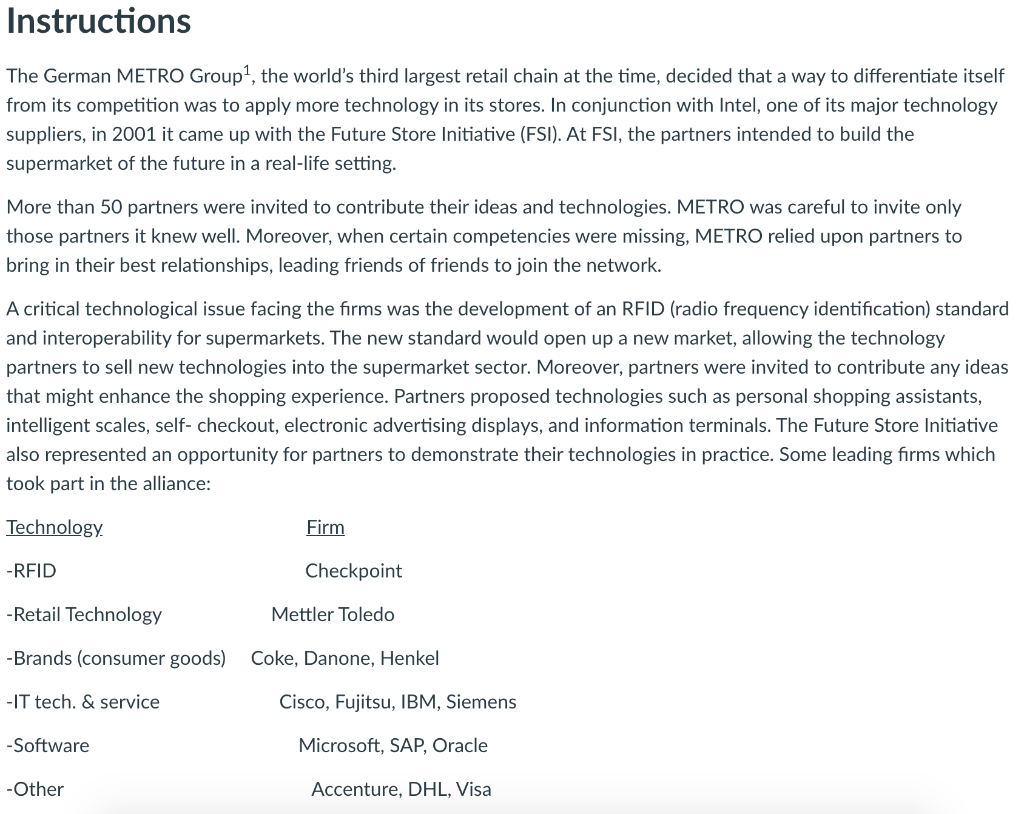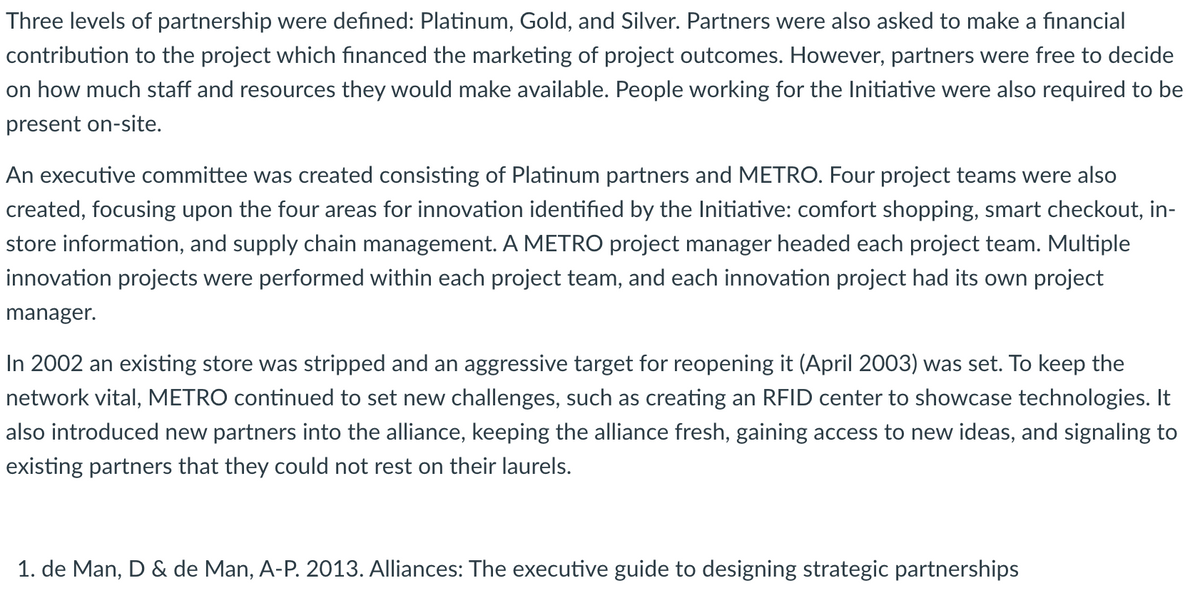What opportunity in the environment suggests that collaboration among a number of parties will be necessary? A. The need for technical standards and interoperability in RFID B. The trend toward online marketing and fulfillment of groceries C. The polarization of wealth and incomes, reducing the middle class D. The increased baby-boomer population E. The “offshoring” of labor
1. What opportunity in the environment suggests that collaboration among a number of parties will be necessary?
A. The need for technical standards and interoperability in RFID
B. The trend toward online marketing and fulfillment of groceries
C. The polarization of wealth and incomes, reducing the middle class
D. The increased baby-boomer population
E. The “offshoring” of labor
2. Your book stresses the importance of the “boundaryless” organizational design. With regard to the Metro Group, this structure is achieved via a(n)
a. Acquisition
b. Backward vertical integration
c. Multiparty strategic alliance
d. Internal development
e. Forward vertical integration
3. Why would Metro Group choose this particular corporate-level strategy over others?
A. To assemble all of the components via M&A would be very difficult as some firms are large (e.g., Intel) and many firms would need to be acquired.
B. Only one value chain activity (technology development) is needed, not the entire organization.
C. Some of the technologies are not likely part of the Metro Group core competences
D. Even if it were possible to develop them internally, the technologies might take a long time to develop.
E. All of the above
4. Suggest intangible resources (strengths) that the Metro Group leveraged to successfully execute this particular corporate-level strategy.
A. Excellent relationships with technology suppliers, including Intel’s experience in building R&D collaborations
B. A physical space (the stripped-down Future Store) in which experimentation, learning, and integration of knowledge might occur.
C. The data analytics algorithms the Metro Group utilized to streamline its operations.
D. a & b only
E. All of the above
5. How is the FSI structured to support the integration of knowledge from various sources?
A. Teams are an integrative device.
B. The hierarchy is an integrative device.
C. Being present on-site (collocated) helps with collaboration.
D. Being colocated in a stripped-down store (a discursive space) facilitates collaboration
E. All of the above
6. How does the way FSI is structured support the experimentation and learning necessary to build an innovative new store?
A. It continuously introduces new partners into the alliance
B. Metro Group was the world’s third largest retail chain at the time
C. Metro Group continued to set new challenges
D. The FSI takes on a matrix organizational form
E. It is decentralized, permitting partners considerable latitude


Trending now
This is a popular solution!
Step by step
Solved in 3 steps









